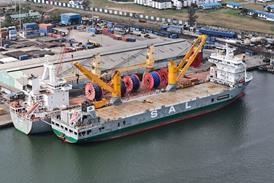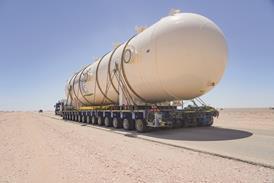Environmental organisations have teamed up with international shipping associations to call for a carriage ban of non-compliant marine fuels when the global 0.5 percent sulphur cap takes effect in 2020.
From January 1, 2020, in regulations set by the International Maritime Organization (IMO), the maximum permitted sulphur content of marine fuel (outside Emission Control Areas) will reduce from 3.5 percent to 0.5 percent.
At present, the regulations allow vessels to carry non-compliant marine fuels in their bunker tanks, so long as they do not burn it.
In a joint statement ahead of an IMO meeting in February, at which proposals for a carriage ban will be discussed by governments, the coalition of environmental and shipping organisations assert that such a ban will help ensure robust, simplified and consistent enforcement of the global sulphur cap.
To secure the intended environmental and health benefits, the organisations say it is of utmost importance that enforcement of this standard is efficient and robust globally. The joint statement explained: "Unless a ship is using an approved equivalent compliance method, there should be no reason for it to be carrying non-compliant fuels for combustion on board."
With the 2020 cap expected to significantly increase ships' operating costs, the organisations warn that any failure by governments to ensure consistent implementation and enforcement could also lead to serious market distortion and unfair competition.
The call for a prohibition on the carriage of non-compliant fuels is supported by the following organisations: BIMCO, Clean Shipping Coalition, Cruise Lines International Association, Friends of the Earth US, International Chamber of Shipping, International Parcel Tankers' Association, Intertanko, Pacific Environment, World Shipping Council, and WWF Global Arctic Programme.
The industry proposal to the IMO for a carriage ban of non-compliant marine fuel in 2020 can be found here.
















